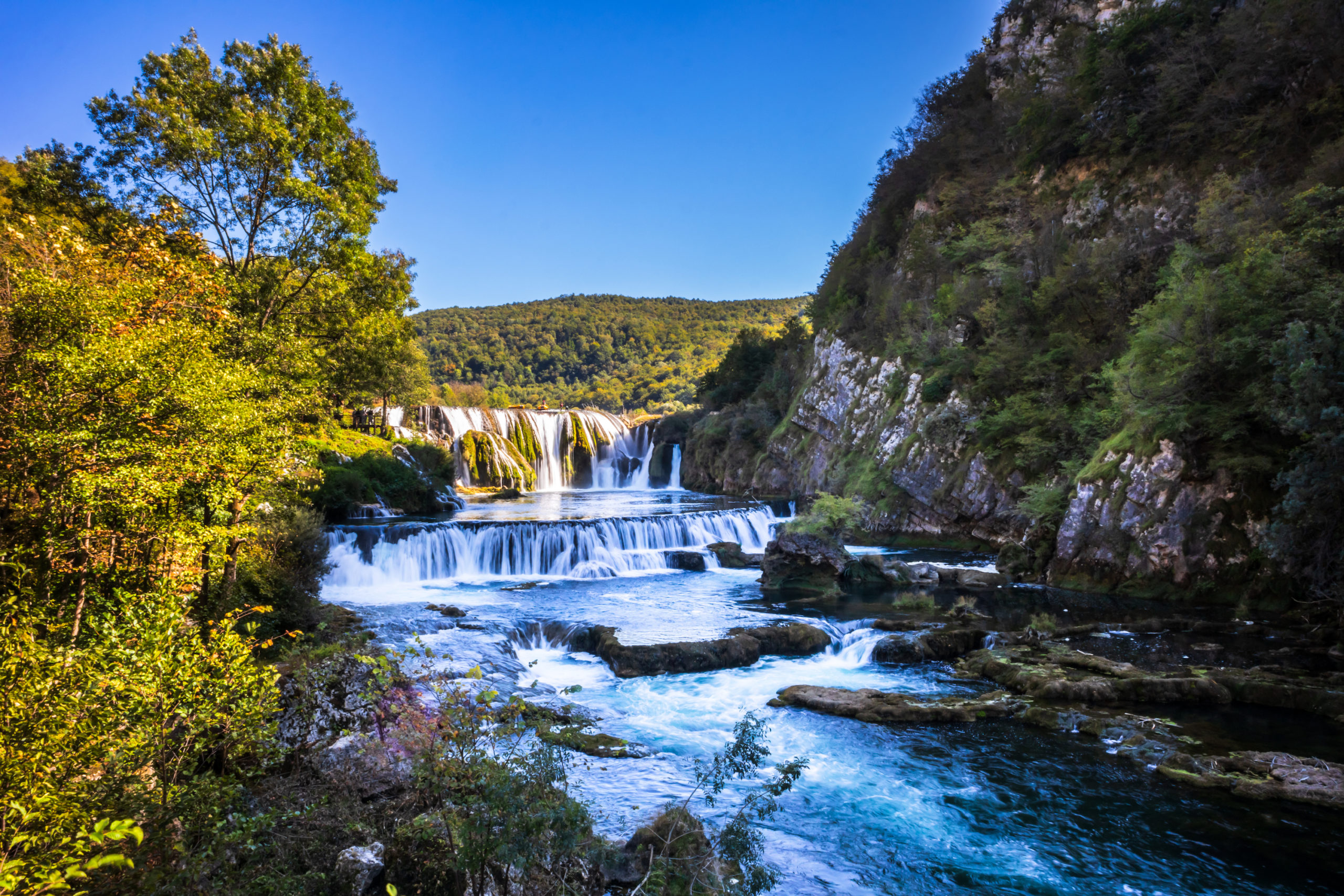On the 6th of October, it was time for the Republika Srpska to have its first round of thematic Working Group meetings. Over a hundred participants took part in the meeting of seven thematic areas (Water; Waste; Biodiversity and Nature Conservation; Air Quality, Climate Change and Energy; Chemical Safety and Noise; Sustainable Resource Management; Environmental Management)

Just as with the other WG meetings in the other jurisdictions, the goal was to discuss key challenges in each of the seven thematic environmental areas.The group also took time to review the initial draft of Situation Analyses.
Biljana Macura, a researcher at SEI and scientific adviser in the ESAP2030+ project, introduced the meeting and explained the key parts of the projects. She also stressed how active participation is central to this project:
“Local voices are crucial for building environmental strategy and action plans. Active participation of diverse groups of stakeholders via working groups in all seven thematic areas is a key for the success of the entire project.”
A brief overview of the thematic group of water
Dr. Selma Čengić and Dr. Svjetlana Lolić are leading the thematic area of water. Dr. Čengić is the executive director at the Hydro-Engineering Institute Sarajevo and Dr. Lolić is the Head of Department of Microbiology and Associate Professor at the University of Banja Luka. Together they were facilitating the first WG meeting on water. The people who participated represented sectors of civil society, business, academia and government.
Financial resources in the water sector
The ever-present financial problem was highlighted, not only in terms of building necessary infrastructure, e.g. wastewater treatment plants but also in terms of their further maintenance. Participants in the WG meeting highlighted examples showing how continued maintenance is sometimes lacking. For example, the recently built treatment plant in Bileća is not operational because there is not enough funding to maintain it.
Financial resources are also necessary to transpose EU directives, such as the wastewater directive. Dr Lolić explains:
“We need to first create the conditions for the application of the directive and only after enter into transposition and implementation. We shouldn’t accept something that we are not able to fulfil”.
Legislations, inter-sectoral cooperation and other challenges
Another issue that participants were pointing out was the problem of effective implementation of the existing legal regulations. The need for the necessary improvement of the work of the inspection service was highlighted. The existing provisions and regulations, as well as the signed international conventions, are implemented to an insufficient extent, and some not at all.
Connected to the constructions of wastewater treatment plants and small hydropower plants, the challenge of inter-sectoral cooperation was pointed out (jurisdiction of different ministries). There was a consensus that the water sector is linked with almost all other sectors and that targets and measures will need to be coordinated with other thematic groups.
The pressures exerted on aquatic ecosystems by industrial wastewater, municipal wastewater, agriculture, small hydropower plants and landfill leachate were emphasised. This was closely linked to discussions around existing sewage network and inadequate water charges as well as problems with droughts and floods, spatial planning and illegal construction of buildings.
Dr Lolić summarised the meeting by letting participants know about the next steps:
“In the next 7-10 days, we expect the participants to provide us with inputs and suggestions to the Situation Analysis of the water thematic area and to point out to us the key challenges that we may have missed. The next meeting of the working group is planned for early November”.






